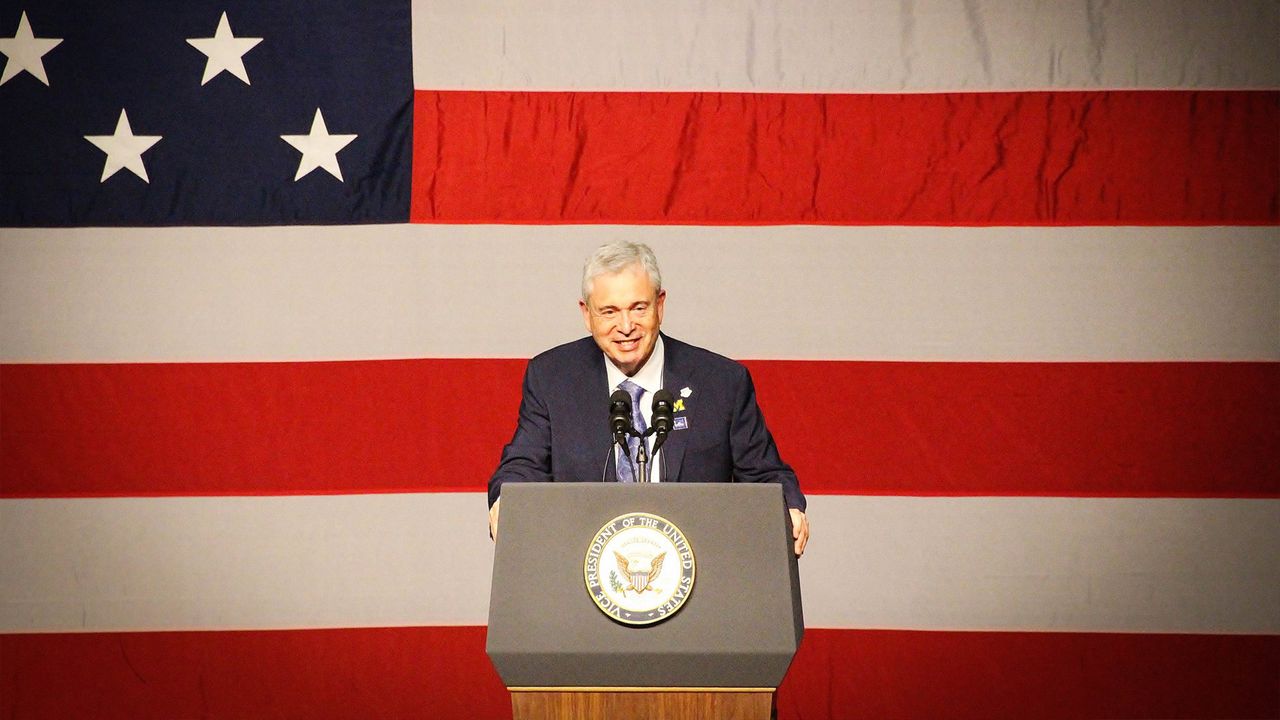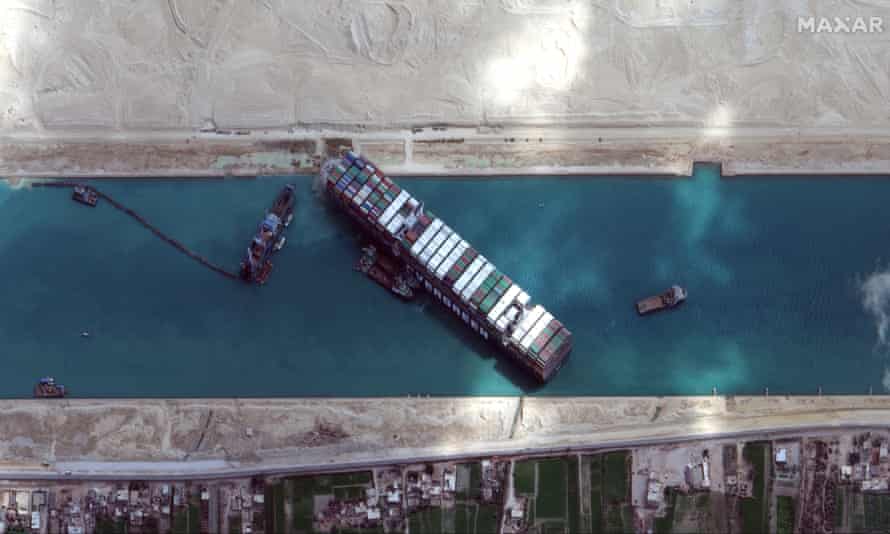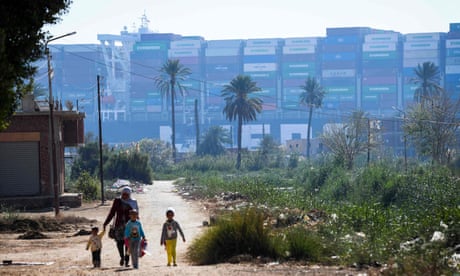HATE SPEECH AGAINST DEMOCRATS AND WITCHES
Several University of Michigan deans condemn comments made by GOP chairman3/28/2021

University of Michigan Board of Regents member Ron Weiser smiles during the University of Michigan Board of Regents annual budget meeting on Thursday, June 15, 2017. Matt Weigand | The Ann Arbor News Thursday, June 15, 2017. Matt Weigand
By Steve Marowski | smarowski@mlive.com
ANN ARBOR, MI — Several deans at the University of Michigan signed a letter sent to the university community Sunday condemning comments made by Michigan GOP Chair and UM Regent Ron Weiser.
Weiser came under fire following comments he made during an event for the North Oakland Republic Club Thursday, March 26, when Weiser called Gov. Gretchen Whitmer, Attorney Dana Nessel and Secretary of State Jocelyn Benson the “three witches” and said the GOP needs to make sure “they are ready for the burning at the stake.”
His comments were captured in a video shared on social media.
The letter was signed by six female deans at the university — Anne Curzan of the College of Literature, Science and the Arts; Patricia Hurn of the School of Nursing; Laurie McCauley of the School of Dentistry; Elizabeth Birr Moje of the School of Education; Lori Ploutz-Snyder of the School of Kinesiology; and Lynn Videka of the School of Social Work — and more than a dozen other deans signed in solidarity.
“We find your comments about elected leaders in the state of Michigan to be insulting, demeaning to women, and contrary to the democratic values of our state and country,” the letter reads. “While your remarks may have been motivated by your personal views, they are damaging to the community of the University of Michigan and the schools and colleges that we lead given your role as a regent.
“Your words do damage and disrespect not only to women in leadership positions, whether elected or appointed, but also to young women who will lead in the future. We must speak out in protest when women are threatened with violence because of the decisions they have made. We believe that sexist name calling and threats of violence, especially from those in positions of power, simply are not acceptable. This is not a context-dependent question: they are not acceptable.
“We feel strongly that your comments do not support the university’s and our units’ values of diversity, equity, inclusion, and justice. Nor do your comments support robust civil debate and democratic engagement. The latter point is particularly saddening and ironic because you have been a champion of democratic values through institutions you have supported on our campus.
“Whether or not you are speaking in your official capacity as a regent, you remain a representative of the university, and you have a responsibility to the university community you lead.
“We call on you to repair the serious harm you have caused,” the letter concludes.
Provost Susan Collins responded to the letter in full support of the deans and said she found Weiser’s remarks to be demeaning to women and “contrary to the democratic values of our state and country.”
“Further, I am particularly concerned that his remarks were antithetical to our university’s focus on creating a culture that is based on shared values, and to our long-standing commitment to diversity, equity and inclusion,” Collins said. “Our speech and our behavior determine our culture (and vice versa). Leadership has a critical role to play in ensuring that we stand by our commitments.
“As provost, I reaffirm that:
All members of our community can and should expect respect. This most certainly includes women and those from marginalized groups.
Violent references and images are never acceptable ways to counter those with whom we disagree.”
Since Weiser’s comments, other UM regents have spoken out and some have called for Weiser’s resignation from the board, including Mark Bernstein and Jordan Acker.
In a series of tweets on March 26, Board Chair Denise Illitch called Weiser’s language “repugnant” and his comments “crosses a line that is inconsistent with what should be our shared values,” but she did not call on him to resign.
Related: Some University of Michigan regents call on Weiser to resign following ‘three witches,’ assassination comments
UM President Mark Schlissel issued a statement on March 27 condemning any suggestion of violence against a duly elected state or federal official. He added that elected officials must adhere to a higher standard, regardless of the context of their remarks.
In a statement made on Saturday, Weiser apologized to those he offended “for the flippant analogy about three women who are elected officials and for the off-hand comments about two other leaders. I have never advocated for violence and never will.”
“While I will always fight for the people and policies I believe in, I pledge to be part of a respectful political dialogue going forward,” Weiser said.
Related: Michigan GOP chairman apologizes for assassination comments, calling top Democratic women ‘three witches’
Nessel responded to Weiser on Twitter Sunday morning with the following statement: “This is not an apology. This is Ron Weiser trying to salvage his relationship with @UMich. If Ron’s comments inspired assasination attempts against the 5 officials he threatened, Ron would be fine with it as long as the university named another hall after him.”
Weiser faced pressure to resign in January from University of Michigan faculty and students who cited his “complicity” in the violence at the U.S. Capitol building on Jan. 6.
He was elected to the board in 2016. Weiser’s board term runs through 2025.
Michigan Republican Party
leader “jokes” about killing
leader “jokes” about killing
Democrats, anti-Trump Republicans
Kevin Reed
WSWS
In comments before a meeting of supporters last Thursday, Michigan Republican Party Chairman Ron Weiser “joked” that the top three elected Democrats in the state are “three witches” that the GOP needs to “take out,” “soften up” and get ready “for the burning at the stake.”
Weiser was speaking about Michigan Governor Gretchen Whitmer, Attorney General Dana Nessel and Secretary of State Jocelyn Benson at a meeting of the North Oakland Republican Club. He referred to them multiple times as “the three witches.”
The state chair made his comments—which were recorded on a smartphone video and shared on multiple social media platforms—in the course of reviewing Republican Party plans for the 2022 elections.

Kevin Reed
WSWS
In comments before a meeting of supporters last Thursday, Michigan Republican Party Chairman Ron Weiser “joked” that the top three elected Democrats in the state are “three witches” that the GOP needs to “take out,” “soften up” and get ready “for the burning at the stake.”
Weiser was speaking about Michigan Governor Gretchen Whitmer, Attorney General Dana Nessel and Secretary of State Jocelyn Benson at a meeting of the North Oakland Republican Club. He referred to them multiple times as “the three witches.”
The state chair made his comments—which were recorded on a smartphone video and shared on multiple social media platforms—in the course of reviewing Republican Party plans for the 2022 elections.
Ron Weiser (Image credit Facebook/ronweiserGOP)
His two statements were, “I made the decision to continue to serve to make sure we have an opportunity to take out those three witches in two years from now,” and, “Our job now is to soften up those three witches and make sure that when we have good candidates to run against them that they are ready for the burning at the stake.” Weiser then added, “And maybe the press heard that too.”
These “jokes” were made less than six months since 14 men were arrested by the FBI for plotting to kidnap and kill Governor Whitmer and overthrow the government in Michigan. The group of individuals are part of a right-wing paramilitary group calling themselves the Wolverine Watchmen.
Although reports about the ongoing case against the conspirators had virtually disappeared from the corporate news coverage, a hearing for the three leaders of the plot that began on March 3 showed that one of the men planned to “hogtie” the governor and “put her on display.”
In testimony given by an FBI informant placed within the Wolverine Watchmen group, it was also revealed that the individuals worked with other right-wing organizations in Ohio and Wisconsin and were planning to kick-off a “boogaloo”—a civil war—that would result in “installing” the Wolverine Watchmen as the new government. The informant said the plot included plans to target Attorney General Nessel and Michigan Lieutenant Governor Garlin Gilchrist, who is African-American.
Several of the Wolverine Watchmen involved in the plot to kidnap and murder the Democratic Party leaders are from the towns of Lake Orion and Clarkston in Oakland County where the Thursday’s Republican Party meeting was held.
Weiser used similar blood-soaked language Thursday in discussing plans to remove Michigan Representatives Fred Upton of St. Joseph and Peter Meijer of Grand Rapids Township, two of the ten Republicans who voted for the impeachment of then-President Trump on January 13.
In response to a question about what the Michigan Republicans were going to do about them, Weiser said, “Ma’am, other than assassination, I have no other way of even voting that, OK?” To this comment someone in the audience can be heard saying, “Don’t say that too loudly.”
These comments were also made less than three months after the storming of the US Capitol by a mob that was planning to kidnap and/or murder top congressional Democrats and the Republican Vice President Mike Pence.
That the leader of the Michigan Republican party is making supposed jokes about assassinating “disloyal” members of his own party and murdering leading Democrats—as well as the enthusiasm with which these comments were received by his audience—is further evidence that the GOP is being converted into a party of the fascist ultra-right.
In predictable fashion, the pro-Republican wing of the media gave Weiser a pass on his comments and allowed the party leader to excuse himself by saying that while he should have chosen his words more carefully, “anyone who knows me understands I would never advocate for violence.” Assurances such as these are worthless in the present environment in which the Republican Party is responsible for the growth of the increasingly open assault on constitutional and democratic rights within the US.
Weiser also said he spoke to Representatives Upton and Meijer and told them that his “off the cuff remarks” received “more scrutiny from the media and leftists in the last 24 hours than the governor’s handling of COVID, the deaths she caused in nursing homes and unemployment issues impacting too many hard-working Michiganders to this day.” Meijer and Upton declined to comment on Weiser’s statements.
Other Republicans openly defended Weiser’s threats. Co-Chair of the Michigan Republicans Meshawn Maddock tweeted, “Too bad all the snowflakes in the mainstream media see misogyny where it doesn't exist. Calling someone a witch is NOT misogynist. This is more of the same from the left—instantly label everything as ‘misogyny’ or ‘racist.’ This hurts real efforts to become a more just society.”
Meanwhile, various Democratic Party officials issued statements of protest. Mark Bernstein, a fellow University of Michigan Board of Regents member with Weiser, told the media that the comments were “blatantly sexist,” “dangerous” and “damaging to our state and the University of Michigan” and called on the Republican to resign from the board of regents.
The Republicans are taking an aggressive posture against Whitmer in an environment where the right-wing policies of the Democrats are completely exposed. Weiser is raising the nursing home deaths just as the Republicans in the state legislature have authorized funds to be used by any county prosecutor in Michigan who wants to prosecute the governor over the high number of COVID-19 fatalities in the state’s nursing homes, a result of Whitmer’s order to transfer elderly patients diagnosed with coronavirus from hospitals back to nursing homes.
Following the lead of President Joe Biden, who has repeatedly called for Democratic Party “unity” with the Republican right, Gretchen Whitmer’s press secretary Bobby Leddy told the media, “As the governor has said repeatedly, it’s time for people of good will on both sides of the aisle to bring down the heat and reject this kind of divisive rhetoric, because we need to stay focused on what really matters, and that's working together to get things done for Michigan's working families.”
A spokesperson for Secretary Benson said only that the three female state officials have “experienced firsthand how this rhetoric is later used as justification for very real threats made against government officials, election administrators and democracy itself.”
His two statements were, “I made the decision to continue to serve to make sure we have an opportunity to take out those three witches in two years from now,” and, “Our job now is to soften up those three witches and make sure that when we have good candidates to run against them that they are ready for the burning at the stake.” Weiser then added, “And maybe the press heard that too.”
These “jokes” were made less than six months since 14 men were arrested by the FBI for plotting to kidnap and kill Governor Whitmer and overthrow the government in Michigan. The group of individuals are part of a right-wing paramilitary group calling themselves the Wolverine Watchmen.
Although reports about the ongoing case against the conspirators had virtually disappeared from the corporate news coverage, a hearing for the three leaders of the plot that began on March 3 showed that one of the men planned to “hogtie” the governor and “put her on display.”
In testimony given by an FBI informant placed within the Wolverine Watchmen group, it was also revealed that the individuals worked with other right-wing organizations in Ohio and Wisconsin and were planning to kick-off a “boogaloo”—a civil war—that would result in “installing” the Wolverine Watchmen as the new government. The informant said the plot included plans to target Attorney General Nessel and Michigan Lieutenant Governor Garlin Gilchrist, who is African-American.
Several of the Wolverine Watchmen involved in the plot to kidnap and murder the Democratic Party leaders are from the towns of Lake Orion and Clarkston in Oakland County where the Thursday’s Republican Party meeting was held.
Weiser used similar blood-soaked language Thursday in discussing plans to remove Michigan Representatives Fred Upton of St. Joseph and Peter Meijer of Grand Rapids Township, two of the ten Republicans who voted for the impeachment of then-President Trump on January 13.
In response to a question about what the Michigan Republicans were going to do about them, Weiser said, “Ma’am, other than assassination, I have no other way of even voting that, OK?” To this comment someone in the audience can be heard saying, “Don’t say that too loudly.”
These comments were also made less than three months after the storming of the US Capitol by a mob that was planning to kidnap and/or murder top congressional Democrats and the Republican Vice President Mike Pence.
That the leader of the Michigan Republican party is making supposed jokes about assassinating “disloyal” members of his own party and murdering leading Democrats—as well as the enthusiasm with which these comments were received by his audience—is further evidence that the GOP is being converted into a party of the fascist ultra-right.
In predictable fashion, the pro-Republican wing of the media gave Weiser a pass on his comments and allowed the party leader to excuse himself by saying that while he should have chosen his words more carefully, “anyone who knows me understands I would never advocate for violence.” Assurances such as these are worthless in the present environment in which the Republican Party is responsible for the growth of the increasingly open assault on constitutional and democratic rights within the US.
Weiser also said he spoke to Representatives Upton and Meijer and told them that his “off the cuff remarks” received “more scrutiny from the media and leftists in the last 24 hours than the governor’s handling of COVID, the deaths she caused in nursing homes and unemployment issues impacting too many hard-working Michiganders to this day.” Meijer and Upton declined to comment on Weiser’s statements.
Other Republicans openly defended Weiser’s threats. Co-Chair of the Michigan Republicans Meshawn Maddock tweeted, “Too bad all the snowflakes in the mainstream media see misogyny where it doesn't exist. Calling someone a witch is NOT misogynist. This is more of the same from the left—instantly label everything as ‘misogyny’ or ‘racist.’ This hurts real efforts to become a more just society.”
Meanwhile, various Democratic Party officials issued statements of protest. Mark Bernstein, a fellow University of Michigan Board of Regents member with Weiser, told the media that the comments were “blatantly sexist,” “dangerous” and “damaging to our state and the University of Michigan” and called on the Republican to resign from the board of regents.
The Republicans are taking an aggressive posture against Whitmer in an environment where the right-wing policies of the Democrats are completely exposed. Weiser is raising the nursing home deaths just as the Republicans in the state legislature have authorized funds to be used by any county prosecutor in Michigan who wants to prosecute the governor over the high number of COVID-19 fatalities in the state’s nursing homes, a result of Whitmer’s order to transfer elderly patients diagnosed with coronavirus from hospitals back to nursing homes.
Following the lead of President Joe Biden, who has repeatedly called for Democratic Party “unity” with the Republican right, Gretchen Whitmer’s press secretary Bobby Leddy told the media, “As the governor has said repeatedly, it’s time for people of good will on both sides of the aisle to bring down the heat and reject this kind of divisive rhetoric, because we need to stay focused on what really matters, and that's working together to get things done for Michigan's working families.”
A spokesperson for Secretary Benson said only that the three female state officials have “experienced firsthand how this rhetoric is later used as justification for very real threats made against government officials, election administrators and democracy itself.”










